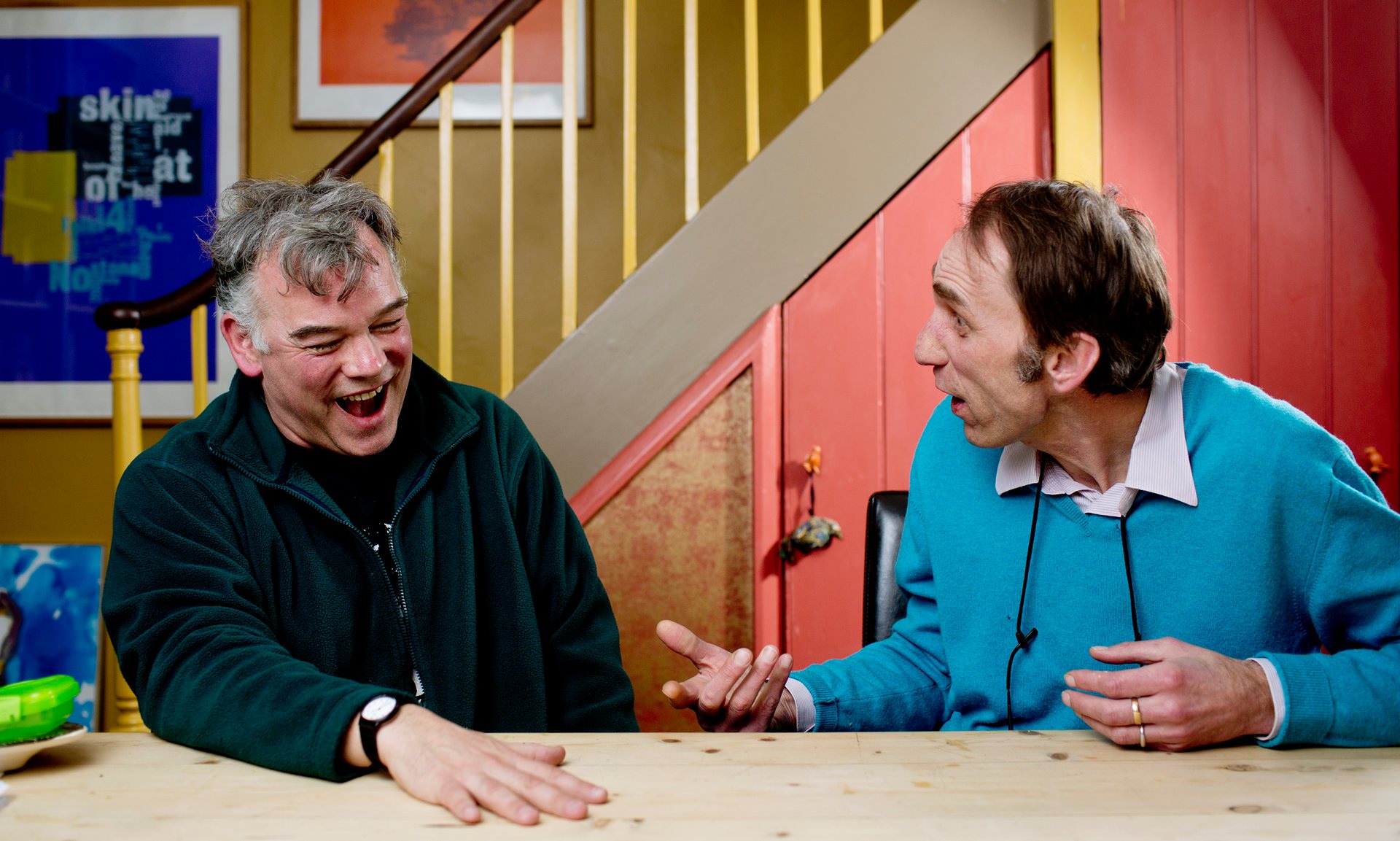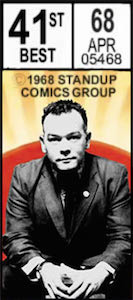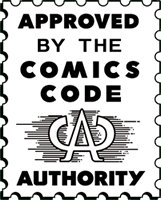Stewart Lee's Comedy Vehicle Series 4Will Self meets Stewart Lee: ‘Are you really, ultimately embittered, or not?’
As his TV series returns to our screens, comedian Stewart Lee talks to Will Self about his prickly stage persona, how social media is changing comedy and why you won’t see him on Mock the Week
I first saw Stewart Lee’s standup act in the early 2000s at the Hackney Empire, and have seen him several times since at venues in London and Edinburgh. Readers unfamiliar with the live Lee phenomenon may know of him through the hugely successful – and equally controversial – Jerry Springer – The Opera, which he co-wrote, or via the TV work he has done over the years, beginning with co-writing credits on Armando Iannucci’s On the Hour in the early 1990s. On Thursday the fourth series of Stewart Lee’s Comedy Vehicle will begin on BBC2, and the new shows feature all of Lee’s trademark virtuosity – and his equally familiar self-evisceration. Shot as a live standup act at the Mildmay Club in Stoke Newington, where Lee plays to his home crowd (which he characterises as “politically correct, Guardian-reading terrorist sympathisers”), the shows consist of long, narrative-driven absurdist monologues, during which he deconstructs not just the warped problematic of contemporary Britain, but that of his own comic persona. On stage, Lee is apparently an embittered, envious, self-lacerating man, caught in a ferocious double-bind: if he’s unsuccessful it’s because his audience are stupid shits who don’t get his jokes; and if he’s successful it’s because he’s a stupid shit churning out jokes that confirm his audience in their prejudices. So convincing is this act – if indeed it is an act – that I became intrigued: was the “real” Lee quite as prickly as his performance persona? In order to find out I asked him over for a serious sit-down. Here are the results.

Stewart Lee and Will Self in Self’s kitchen Photograph: David Bebber for the Guardian
WS: At the live show I saw, you said, “Nobody is competent to review me.” Am I?
SL: It’s like lots of things: it’s true but it’s also a joke. When I stopped doing standup for a while about 14 years ago, it was partly because the stuff I was doing, that I thought was interesting, was being reviewed as if I was making mistakes. I remember a review in the Independent that said, “It’s awful; at one point he loses the whole room for about half an hour, but somehow miraculously manages to claw it back.” Of course, I was working half an hour ahead all the time trying to think, “If I put that in there then I can ruin that bit later on but I can bring it back via that person who would …” You know? I really noticed the scene changing in the 90s. The audience at the Bedford – a pub I used to work at in Balham – started to change. There were new people in with city jobs and they hadn’t come to see you, you were like their employee, and they had expectations and demands they thought should be met by the performer. I remember someone shouting out: “We’ve paid for jokes, there aren’t enough jokes.” I think this has happened across the arts and education generally, hasn’t it? It’s turned into a customer/client relationship. And so when you go on stage and say, “No one is equipped to review me,” you’re saying, “This is going to happen on my terms.”
WS: So, it’s a sort of psycho-social response to a changing economic situation … You want to stop the act being commoditised at that point.
SL: I keep thinking it will run out of mileage, but there always seems to be new ways to spin it. Even when the people are coming in ever greater numbers, my character feels there must be some problem with this.
WS: In a sense, the genius of the shtick lies in its endlessly regressive self-reflectivity, but from the audience’s point of view we’re sitting there thinking, “Is he really actually, ultimately embittered or not?”
SL: One of the reasons I always man the book stall afterwards is I find it very funny to do all that edgy stuff for two hours and then be all, “Hello, how are you? Would you like this signed, too?” As far as being embittered on stage is concerned, that becomes problematic when things happen in the room and you have to stay in the character. I was in Dublin and I did a long bit about thinking I’m being haunted by the ghosts of comedians who have killed themselves. It goes on for ages and people buy into it. I’ve had people in the front row going, “Can you see them? Are they around you?” Anyway, a woman in the front row got her camera out and took a photo. So I went, “Why would you do that? Why would you take a photo of someone remembering people they know who have taken their own lives?” Then she crept out. So she’s on Twitter, she’s a journalist for the Irish Times, or whatever, and she’s tweeted: “I’ve just seen Stewart Lee have a mental breakdown on stage thinking that ghosts are attacking him.” She bought into it to the point where she thought she’d got a scoop that I’d gone nuts. Again, at the Soho theatre a guy got really angry. He said it wasn’t the audience’s fault that they didn’t get what I was doing, and I should be better at my job. I thought there was going to be a fight − he came down to the stage and was hanging around in a menacing way. I had to come out of character and say, “Look this is a construct.”
WS: The constant factor here seems to be social media – it’s changing the standup’s performance dynamic. And your approach is to go towards it and embrace it: you have to follow the logic, because the character is the sort of person who would go back and obsessively look at the social media response.
SL: He wouldn’t get involved.
WS: He wouldn’t necessarily get involved, but he’d have to know.
SL: Yeah, he’d have to know.
WS: Is it the same impulse that makes you put negative quotes from your peers about you on your publicity; is it to further define the character’s purity, since he’s constantly attacking his peers and what they’re doing?
SL: With a lot of comedians I don’t understand what’s going on; why’s this person coming on stage and pretending to talk about everyday life? Whereas with my character, his job is he’s a comedian. He’s got to do that job, there’s no suspension of disbelief. The drama of it is that it falls apart because he gets fixated on some other thing or self-doubt or anger about a particular thing that isn’t really what you should be doing a routine about. The motivation now, explicitly, is he’s got a mortgage and children. He’s not someone who’s talking about, “Oh, I went to football,” or whatever, so it makes sense that he would talk about comedians and other aspects of comedy.
WS: Mock the Week is a constant whipping boy for you, though …
SL: I’ve got lots of friends who do the show, but at some level I think it has spoiled comedy a bit. A lot of good comics go on those programmes, and 10 years later they aren’t fit for purpose because they’ve got used to saying these disconnected one-liners, and having writers work for them.
WS: So for you there’s a strong sense of the vocation and the purity of the craft?
SL: Yeah, but it’s also much more exaggerated –
WS: – For paranoid, on-stage Stewart?
SL: It is. Things I would let go he wouldn’t. I work a lot of things out on stage nowadays, rather than writing them in big blocks. I’ll be thinking, “He should probably say this now about this person,” although I’m also thinking, “But everyone is going to go, ‘Why have you done that?’” And I have to do it, even though I know it’s going to cause problems – then I have to get myself out of it. Really, what I’ve ended up doing is creating this argument with myself.
Advertisement
WS: Then for the television show you externalise this argument – you turn away from the live audience and address the viewers at home directly.
SL: None of that’s planned – for the TV show I never have a camera rehearsal. I just flipped the dynamic: now the audience at home are my friends and the people who’ve come to see me are these taggers-on. If a gig goes badly my main worry is, “Will these people come back?” Because that will affect my ability to pay the mortgage – but nowadays I don’t really mind what happens, as I think if it all goes wrong for real you still have to go with it. This may sound pretentious, but it’s partly because over the last 20 years or so I’ve been to see a lot of free improvisational music – and I like that when a problem happens instead of trying to avoid it, or cover it up, they go with it.
WS: It becomes part of it.
SL: Yeah, it becomes part of it. Some nights – because all the gigs of last year have been nominally working stuff out for the telly – some of the audiences are unfortunate, or fortunate enough to be there when I think I’ll take this absolutely as far as it can go.
WS: You did that with the gag about the farting cat on the night I saw the live show.
SL: Yes, well, I’m not sure what people will make of that – it’s in the third show, isn’t it?
WS: That’s right, and then you cut to one of these interview segments you do, where Chris Morris seems to be anatomising your “character” still further.
SL: He’s very good at it – Iannucci did it in previous series, and he does it by setting himself up with funny lines, but Chris seems to have thought carefully about how to undermine me; so, the way I play it is not to try and get the better of him, but simply act defeated. The last episode ends with me having genuine hysterics, because I’m just broken by it all. But again, the character in the interview is yet another version of me …
WS: It’s like matryoshka dolls, isn’t it – and perhaps the reason you heart’s still in it (if it is), is precisely because you’ve created the self-reflexive character.
SL: I really, really love being on stage now. Partly, weirdly, because we have a very badly organised life – my wife’s a comic as well [Bridget Christie, see p17; they have two children], and she’s starting to do loads more gigs. We haven’t got any family in London. We haven’t got a nanny or anything like that – so every day is like an organisational and administrative nightmare. So, that three-hour period is when I’m the master of my own decisions: even if it turns nasty, it’s still in the theatre. I read an article about comedians using anonymous writers. This guy was saying he used to go and have ordinary experiences − go to the shops, ride the bus − on behalf of someone who’d become such a celebrity they could no longer report back from the frontline. But I think the sort of version of me on stage can endure, because I’ll talk about not getting a Bafta rather than going to the shops.
WS: That Bafta routine of yours in the show was the crux for me – a perfect exemplar of your character’s foibles, because the ambiguity is absolute: Does he care about not winning one or not? Impossible to say – or perhaps it’s both, like Schrödinger’s cat?
SL: Well … y’know … I don’t mind –
WS: No! I don’t want to know the answer!
SL: I don’t mind − I’ve been up for Baftas three times. I actually won one, which I can’t mention because –
WS: It’d ruin the entire performance. But you are a brilliant comic writer, and you could easily earn your crust as a writer, or directing your own material on stage. You’ve had the experience with Jerry Springer − I wondered why you didn’t go in that direction more?
SL: I had this bad little period where every time I tried to develop a new show in Edinburgh, because of the promoters I was with, I’d end up £10,000 in debt. When I went out on the road with it, it’d be really badly organised – so there was a point where I thought, “I can’t do this any more.” As for Jerry Springer, the arrangement I had with the producers meant we were liable for all the costs arising from the lawsuits taken out by people who were anticipating the passage of the Incitement to Religious Hatred Act. Basically, we came out of the whole thing in debt – and in the meantime I calculated I’d be doing better playing to 100 people above a pub.
WS: I’ve done a bit of standup myself – I also effectively give performances when I do tours to promote my books, but I find it very stressful: if it goes well I can’t sleep, if it goes badly it’s soul-destroying –
SL: Oh, I can’t sleep whatever – it’s a huge problem. The comedian’s thing is you self-medicate with alcohol and knock yourself out – but obviously that’s not a long-term strategy.
WS: But does anyone really have a long-term strategy?
SL: Isis seems to – and, crucially, it involves not drinking …

